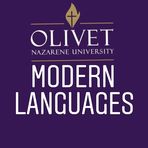L2 Speaking Development During Study Abroad: Fluency, Accuracy, Complexity, and Underlying Cognitive Factors
Document Type
Article
Peer Reviewed
1
Publication Date
3-20-2017
Scholarship Domain(s)
Scholarship of Discovery, Scholarship of Teaching and Learning
Abstract
We take a multidimensional perspective on the development of second language (L2) speaking ability and examine how changes in the underlying cognitive variables of linguistic knowledge and processing speed interact with complexity, fluency, and accuracy over the course of a 3‐month Spanish study abroad session. Study abroad provides a unique learning context for evaluating changes in the underlying dimensions of L2 speaking because learners are fully immersed in the target language and have ample opportunity to implement, practice, and integrate newly gained skills. Participants were 39 native English speakers acquiring Spanish in Argentina. Results show that participants experienced significant gains across complexity, fluency, and accuracy. However, these gains were not evenly distributed across all dimensions or across all learners. Learners with higher levels of L2 linguistic knowledge and faster L2 processing speed prior to study abroad experienced greater gains in accuracy and syntactic and lexical complexity during study abroad.
Recommended Citation
Leonard, Karen, "L2 Speaking Development During Study Abroad: Fluency, Accuracy, Complexity, and Underlying Cognitive Factors" (2017). Faculty Scholarship – Spanish. 4.
https://digitalcommons.olivet.edu/span_facp/4



Comments
Published in the March 20, 2017 issue of the Modern Language Journal. This article is available through Interlibrary Loan for Benner Library patrons.